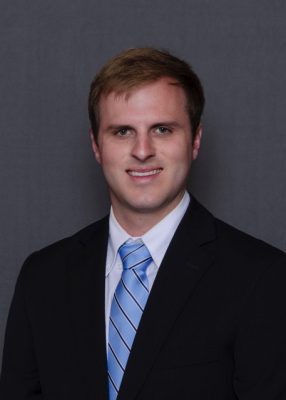Nicholas Lenze Selected as a 2020 Horizon Award Recipient

Nicholas Lenze
Nicholas Lenze, an MPH student in the Population Health for Clinicians concentration, was selected as a 2020 Horizon Award recipient. The Horizon Award recognizes graduate students and recent graduate alumni whose research holds high potential for making a significant contribution to the educational, economic, physical, social or cultural well-being of North Carolina citizens. Lenze’s research focuses on how access to preventive care services predicts the stage of diagnosis in Head and Neck Cancer in North Carolina. Lenze, who is also a medical school student at UNC-Chapel Hill’s School of Medicine, is working with a team of clinicians to advocate for policy change based on their findings. The Graduate School will recognize him and other Horizon Award recipients at the Annual Graduate Student Recognition Celebration in the spring. To learn more about Lenze and his team’s research, read his abstract below:
Project Title: Access to Preventive Care Services Independently Predicts Stage at Diagnosis in Head and Neck Cancer
Abstract:
Patients diagnosed with advanced stage head and neck cancer tend to have poor survival outcomes, and those with low socioeconomic status disproportionately experience delays in diagnosis. Our objective was to examine possible mechanisms underlying this relationship. Using a sample of 1,108 patients diagnosed with head and neck cancer in North Carolina, we found that patients with annual routine dental visits (OR 0.7, 95% CI 0.5-0.9) and at least one colonoscopy (OR 0.7, 95% CI 0.5-0.9) over the past 10 years had decreased odds of advanced stage at diagnosis. Alternatively, patients with no insurance (OR 1.8, 95% CI 1.1-2.9) or an income<$20,000 (OR 1.6 95% CI 1.03-2.6) had increased odds of advanced stage at diagnosis. Patients with an advanced stage at diagnosis had nearly twice the risk of 5-year mortality (HR 1.9, 95% CI 1.6 – 2.3) compared to patients with an early stage at diagnosis. These findings demonstrate the importance of insurance coverage and access to preventive care services such as routine dental visits in optimizing head and neck cancer outcomes. Policy solutions may involve Medicaid expansion in North Carolina, inclusion of routine dental services in Medicare coverage, and oral health literacy campaigns. I am currently working with a team of dentists, physicians, and public health leaders to disseminate our findings and advocate for policy change.
